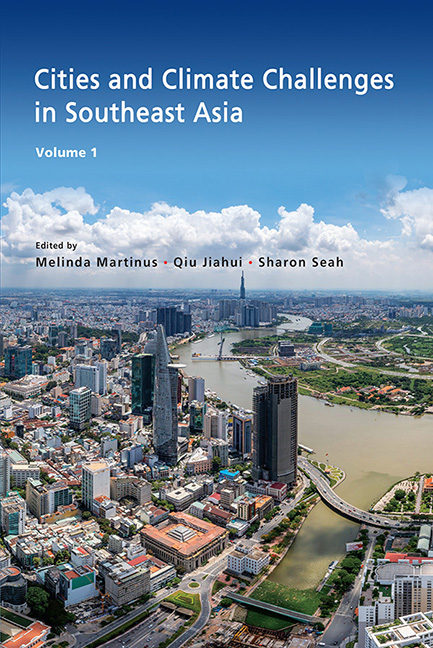4 - Climate Change and Heritage Preservation: A Case Study of the Complex of Hue Monuments
Published online by Cambridge University Press: 09 January 2024
Summary
Summary:
■ Climate change has profoundly impacted many heritage sites on Vietnam’s central coast, notably the Complex of Hue Monuments.
■ Heritage conservation has been acknowledged in more recent climate policies. In particular, Vietnam’s Updated Nationally Determined Contribution (NDC) to the Paris Agreement in 2020 realized that the loss of cultural heritage and local knowledge is among the significant impacts caused by climate change.
■ However, measures tackling climate change at the national level are too broad; hence it is challenging to apply them to particular cases, such as the Complex of Hue Monuments.
■ Vietnamese authorities, including central and local governments, have put different policies and measures into practice to safeguard precious cultural heritage. Existing legislative frameworks might not be enough to support the implementation. Therefore, more detailed technical frameworks are needed.
INTRODUCTION
Climate change has recently become a common concern for the international community due to its profound impacts on socio-economic growth at the global, regional and local scales (Orr et al. 2021, p. 1; Dastgerdi et al. 2019, p. 4). Given their importance in accelerating economic development, cities can play a crucial role in shaping policies for advancing climate ambitions (Jones 2018, p. 63). According to the Fifth Assessment Report of the Intergovernmental Panel on Climate Change (IPCC), cities are regarded as drivers of transformative actions because of their ability to handle sectoral, demographic, spatial and ecological challenges of climate change as well as disaster risks (Bartlett and Satterthwaite 2016, p. xxv). Also, cities are increasingly active in promoting and fulfilling agreements such as the Paris Agreement (2015) of the United Nations Framework Convention on Climate Change and the Sustainable Development Goals (Paris Agreement 2015). These frameworks highlight the importance of urban communities in responding to climate change.
Many nations expend significant efforts in creating policies that help to support the most vulnerable social groups and regions (Phuong et al. 2018, p. 518). Many countries have actively fostered knowledge exchange, produced training and educational programmes, promoted social networks and bridged administrative levels and scales in responding to climate change (Armitage et al. 2011, p. 996). One example is through heritage preservation.
- Type
- Chapter
- Information
- Cities and Climate Challenges in Southeast Asia , pp. 44 - 58Publisher: ISEAS–Yusof Ishak InstitutePrint publication year: 2023

